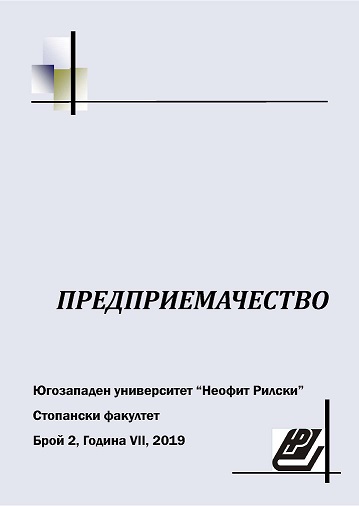THE THEORY OF “ECONOMIC COMPLEXITY AND PRODUCT SPACE”: WHAT IT MEANS FOR ECONOMIC DEVELOPMENT IN GENERAL, AND FOR BULGARIA IN SPECIFIC
THE THEORY OF “ECONOMIC COMPLEXITY AND PRODUCT SPACE”: WHAT IT MEANS FOR ECONOMIC DEVELOPMENT IN GENERAL, AND FOR BULGARIA IN SPECIFIC
Author(s): Geert M.J. TermeerSubject(s): Social Sciences, Economy, National Economy, Sociology, Economic development
Published by: ЮГОЗАПАДЕН УНИВЕРСИТЕТ »НЕОФИТ РИЛСКИ«
Keywords: Economic Complexity (Index); Product Complexity (Index); Complexity Outlook (Index); Product Space; (tacit) knowledge; knowhow; capabilities; diversification; connectedness
Summary/Abstract: Ricardo Hausmann (Harvard University) and Cesar Hidalgo (MIT) developed the “Economic Complexity and Product Space” theory, which is based on their findings that the cumulative amount of knowledge in a country is central to the overall economic development of that country. They found that highly developed countries produce and export many different products and services, and in addition produce products and services of a high complexity. Their theory is made concrete and visualized in the “Atlas of Economic Complexity”, also referred to as the “Observatory of Economic Complexity”, which offers useful tools like: the Economic Complexity Index (ECI), which expresses the quantity of complexity of a country; the Product Complexity Index (PCI), which expresses the complexity of a product; the Product Space, which visualizes how many different products a country exports, and in what complexity; the Complexity Outlook Index, which expresses the value of the option to move into more and more complex products, given how far they are from a country’s current position in the Product Space. The Atlas hence translates the theory in concrete tools, useful for countries, regions and companies, which want to speed up their economic development. In this article we present the theory; highlight the useful tools; mention some improvements the scholars still want to develop; and provide some recommendations based on the theory of Economic Complexity and Product Space in general, as well as for Bulgaria.
Journal: Предприемачество
- Issue Year: 7/2019
- Issue No: 2
- Page Range: 172-185
- Page Count: 14
- Language: English

